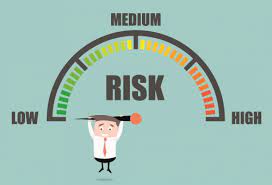Mon-Sat 9am-7pm



Risk analysts are professionals who support the technical side of an organization's holistic risk management approach. Once risk data has been compiled and evaluated, analysts share their findings with managers who use those insights to decide among possible solutions. Risk managers develop plans to minimize and mitigate negative financial outcomes through a combination of project management and proposal development.
In the finance industry, risk analysts are typically employed by investment banks, insurance companies, and organizations responsible for large sums of money like hedge funds and investment firms. While a risk analyst may play a part in the company's enterprise risk management program, working to minimize overall risk across a variety of categories, a financial risk analyst typically focuses on reducing negative financial outcomes related to market risk, credit risk, insurance risk, tradeable risk, and more.

Students planning to pursue a career as a risk analyst can benefit from studying subjects like mathematics, economics and statistics in their 10+2. After your Class 10th board exam, consider selecting either the science or commerce stream. Try to secure at least 50% marks in your higher secondary (10+2) examination, as many colleges select candidates based on their marks in the higher secondary board exam.
Since most employers look for candidates with a bachelor's degree, consider pursuing a Bachelor of Business Administration (BBA) or Bachelor of Commerce (BCom) degree after completing your 10+2 board examination. You can also take an entrance examination offered by certain colleges. Some examples of entrance examinations include Delhi University Entrance Examination (DUET), Christ University Entrance Test (CUET) and Aligarh Muslim University Entrance Examination (AMUEE). You can choose to specialise in finance, banking and insurance, risk management or economics.
After completing your bachelor's degree, you can opt for a master's degree to continue your education. Some of the common postgraduate courses in risk management include Master of Business Administration (MBA) with specialisations in risk management, finance, business analytics, entrepreneurship or marketing. Similarly, you can pursue a Master of Commerce (MCom) degree programme with specialisations in accounting, taxation, banking and finance or mathematics. Alternatively, you can pursue a Master of Economics, Master of Statistics or Master of Finance and Control degree.
After your graduation, you can take an entry-level job to expand your practical knowledge. This also gives you the necessary industry exposure. You can start by shortlisting some of your preferred companies and applying for job profiles that suit your skills and qualifications. There are several opportunities within the risk management services of investment companies, insurance companies, banks and other financial institutions.
A credit risk analyst analyses the risk which the organization faces because of its clients or customers defaulting on loans, credit and also the ones which do not pay for goods or services.
A career in the credit risk analyst role fetches you a salary which ranges between $29,624.75 to $37,919.68. Also, seniority of the role is extremely crucial while deciding the credit risk analyst salary.
This role is extremely important for the investment banks and investment companies. A credit risk analyst in the investment banking sector helps to find out which institution to trust while purchasing a product such as an exotic option. Hence, a credit risk analyst helps against such counterparty risks.
The market risk specialists do the analysis of the negative effect of the factors that pose risk to the organization’s share prices, such as an economic recession.
The salary for a market risk analyst ranges from $109,234 to $115,800. Market risk analysts are hired mainly by the hedge funds where they help the risk managers with market risk measures, models and best practices.
Apart from hedge funds, they also get the opportunity to be hired in all financial institutions including but not limited to the energy industry involved in producing and selling energy. Hence, market risk analysts play a crucial role in making sure that the market risks are looked into properly so that preventive actions can be taken.
An operational risk analyst helps to analyse the effect of risky operational situations or occurrences such as employee fraud, material waste, product malfunction and failure of the system etc. The salary of an operational risk analyst ranges from $5,001.86 to $23,184.31.
Considering that some operational risk is always borne by every company, it is essential that this risk is managed in the best possible way. For instance, a lack of contingency plans for situations like a pandemic, recession etc. will lead to loss while trading. An operational risk analyst helps you create a plan for such emergencies.
This analyst finds out the effect of legislation that has already come as well as any forthcoming one which may have an effect on the organisation. The average salary of a regulatory risk analyst ranges from $44,000 to $89,000.
A regulatory risk analyst is also hired by almost all the industries but specifically, those companies which are into technology, finance, accounting, government services and operations.
Such companies’ operations are mostly affected by the change in legislation. For instance, tax changes as well as new regulations by government effects the way trading happens in the stock market.
| Job Title | Salary |
|---|---|
| Risk Analyst | ?6,42,705 /yr |
| Senior Risk Analyst | ?8,65,258 /yr |
| Lead Risk Analyst | ?20L /yr |
Call us at +91 9205084085, Monday - Friday, 9 am - 7 pm


